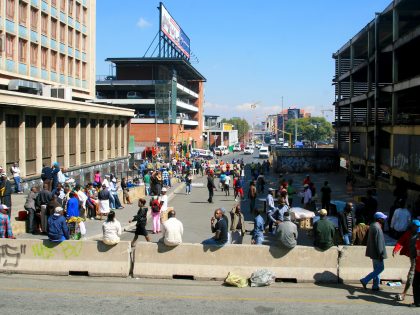
The structural adjustment of education
Why the COVID-19 pandemic is the easy culprit of the global learning crisis—and why that is only half of the story.

Why the COVID-19 pandemic is the easy culprit of the global learning crisis—and why that is only half of the story.

Revisionist histories of South Africa’s transition to democracy are overdue, like on the deadly march on Bisho in the Ciskei homeland on 7 September 1992.

Peter Obi's campaign for president points to new possibilities for a politics that represents Nigeria's poor and working classes.

Why do representative bodies like the union, the party, and the so-called Left seem to fail its constituents during struggles like Marikana?

Accountability—insofar as it ever existed within the South African Police Service—has been reduced to a merely theoretical concept. It is time this changed.

In South Africa, the seismic shifts in unionism triggered by the Marikana Massacre have sadly not resulted in a union movement better equipped to tackle the issues that workers face.

The impact of the Marikana massacre on South Africa’s student movement for free education, and an end to outsourcing, has been overlooked.

Africa's political liberation and economic emancipation can't be one-country affairs, but pan-African combined with international solidarity.

The challenge presented by Argentina: What is the best way to deal with global fiscal pressures in a local context of high expectations and public demands?

Lula's challenge in Brazil: To be successful with proposed reforms, he’d need to take back the anti-systemic appeal stolen by the far-right.

Mexico’s president has a mandate for radical change, but this change must be negotiated within a context of limits produced by the neoliberal period itself.

Western conservation NGOs condemn violence against Maasai, but also don't want herders or subsistence hunters on land they want to control and profit from.

While Chileans have defeated the post-authoritarian neoliberal regime, they face major obstacles on the road to a post-neoliberal social democracy.

We know an enormous amount about what precipitated the 2012 Marikana massacre, but relatively little about what is behind the violence there since.

Xiomara Castro’s leftist government must create capacity for self-determination in a state vulnerable to US pressure and constructed to serve monopoly capital.

The Marikana Massacre changed democratic South Africa forever. It can also catalyze resistance to the current order.

The left's win in Colombia signals that after more than six decades of war, people just want to live with dignity and in peace.

South Africa’s ruling party’s devotion to its policy of cadre deployment is an indication that it values its own power more than the public interest.

Journalism has become a risky and dangerous business in Benin.

Before the Soweto Uprising in 1976, students and workers organized one of the largest strike actions in South Africa’s history.